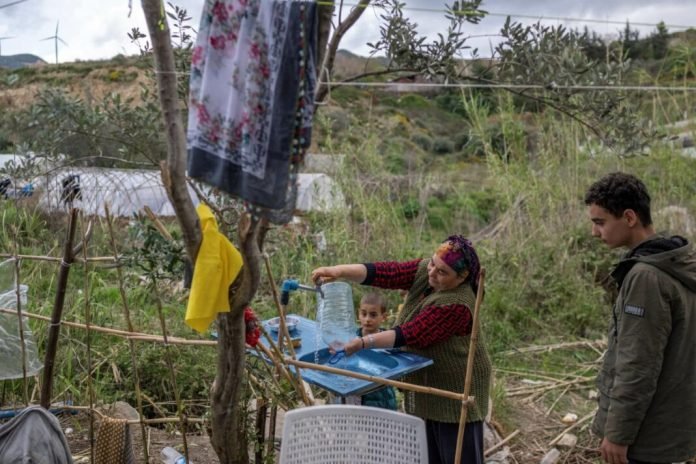
An analysis conducted by healthcare and professional organizations has shown that tap water in Hatay, one of the areas hardest hit by two powerful earthquakes in February, is still unsafe to drink, Turkish Minute reported, citing the Birgün daily.
The magnitude 7.8 and 7.5 earthquakes affected 11 provinces in the country’s south and southeast on Feb. 6, killing more than 50,000 people and leaving millions homeless.
The analysis, jointly conducted by the Turkish Medical Association (TTB), the Hatay branch of the Turkish Health and Social Service Workers Union (SES) and the Hatay Medical Chamber, revealed that only two of the tap water samples taken from 28 locations in Hatay were be safe to drink.
The report on the analysis said 26 of the samples contained bacteria that can lead to stomach and intestinal diseases.
“Most of the water samples collected have shown the presence of E. Coli, with a significant number of samples indicating concurrent growth of both E. Coli and coliform bacteria,” the report said.
Emphasizing the increased likelihood of sewage contamination in the water supply and distribution system, the presence of E. coli in some samples despite the presence of free chlorine in the water was noted as indicative of areas with a very high level of contamination.
Escherichia coli, commonly abbreviated as E. coli, is a type of bacteria that is normally found in the intestines of humans and animals. While many strains of E. coli are harmless and even beneficial for digestion, some strains can cause illness, particularly gastrointestinal infections. These pathogenic strains of E. coli can lead to symptoms such as diarrhea, abdominal pain and in severe cases, more serious health issues like kidney failure.
The report, which calls for meetings of provincial and district public health boards, emphasized that in addition to public institutions, which are the primary responsible parties, the collective efforts of professional organizations, labor unions and civil society organizations are necessary to address the clean drinking water issue.
The report underlined the need for bottled water, which is necessary for residents until tap water becomes safe to drink, to be regularly distributed to the public free of charge. It also reminded that disinfection by public institutions is mandatory to ensure that non-potable water can be used for other purposes.
According to a September report by the Chamber of Environmental Engineers (ÇMO), asbestos was also detected in 16 out of 45 solid and dust samples collected from different regions of Hatay.














